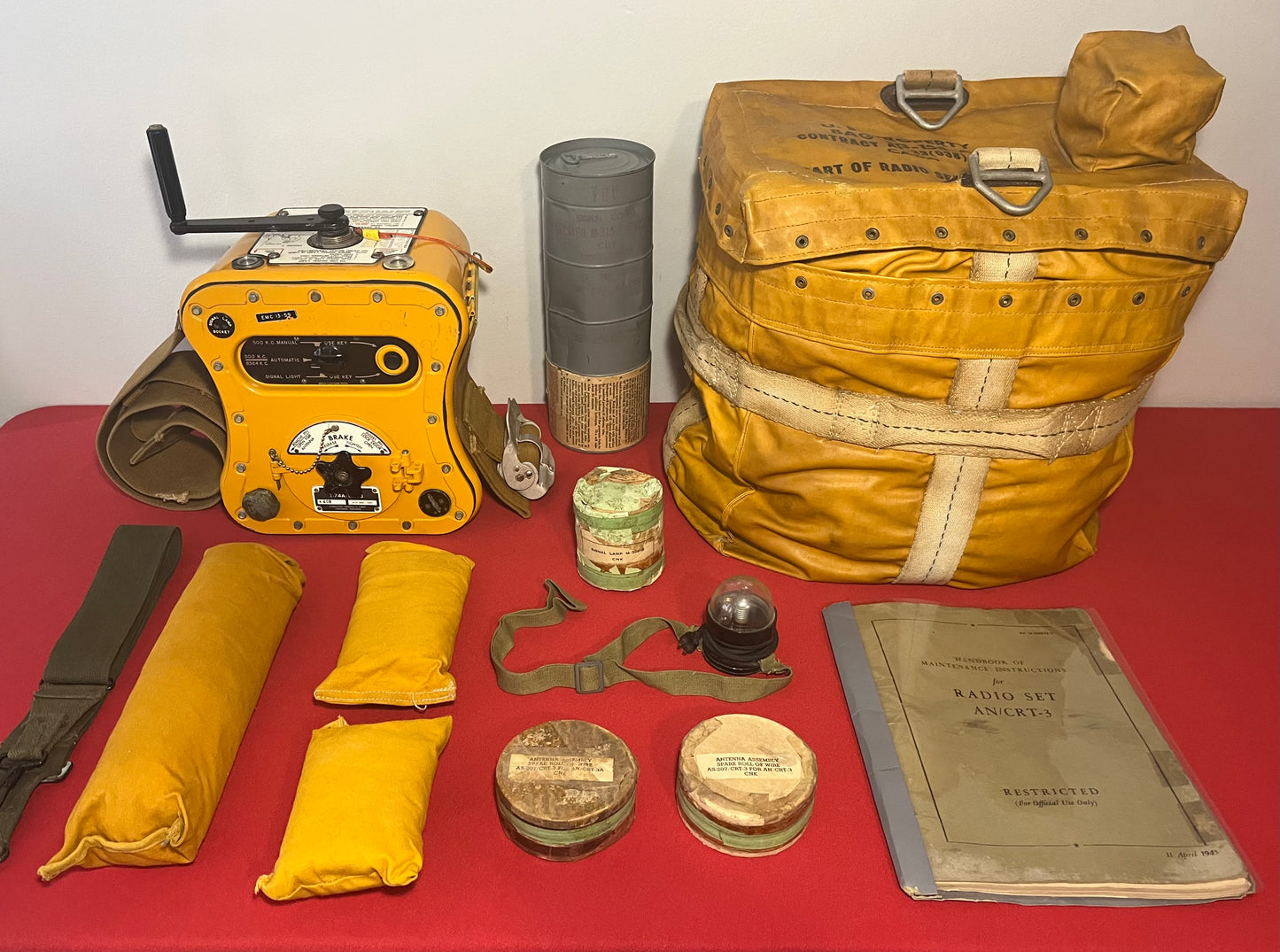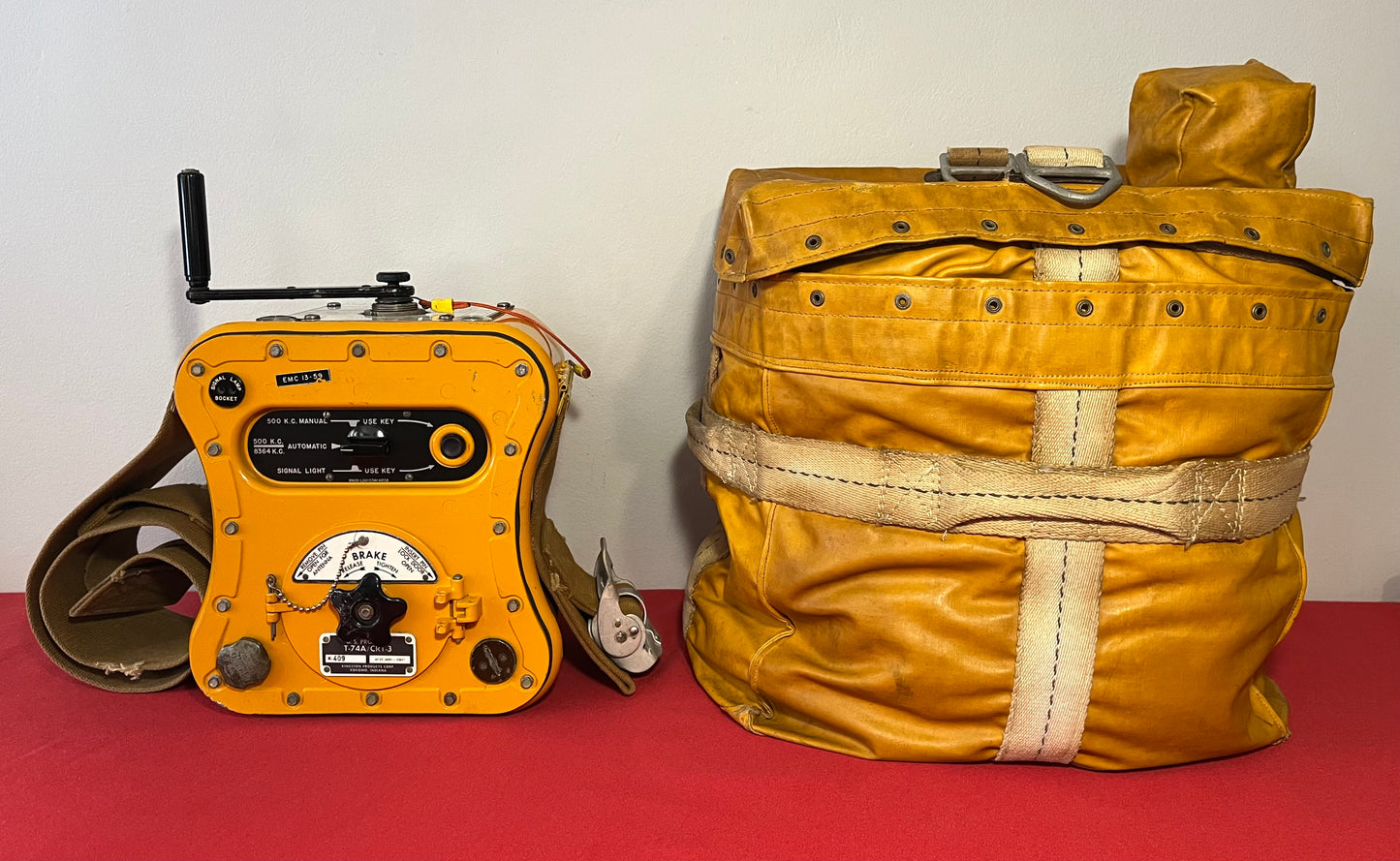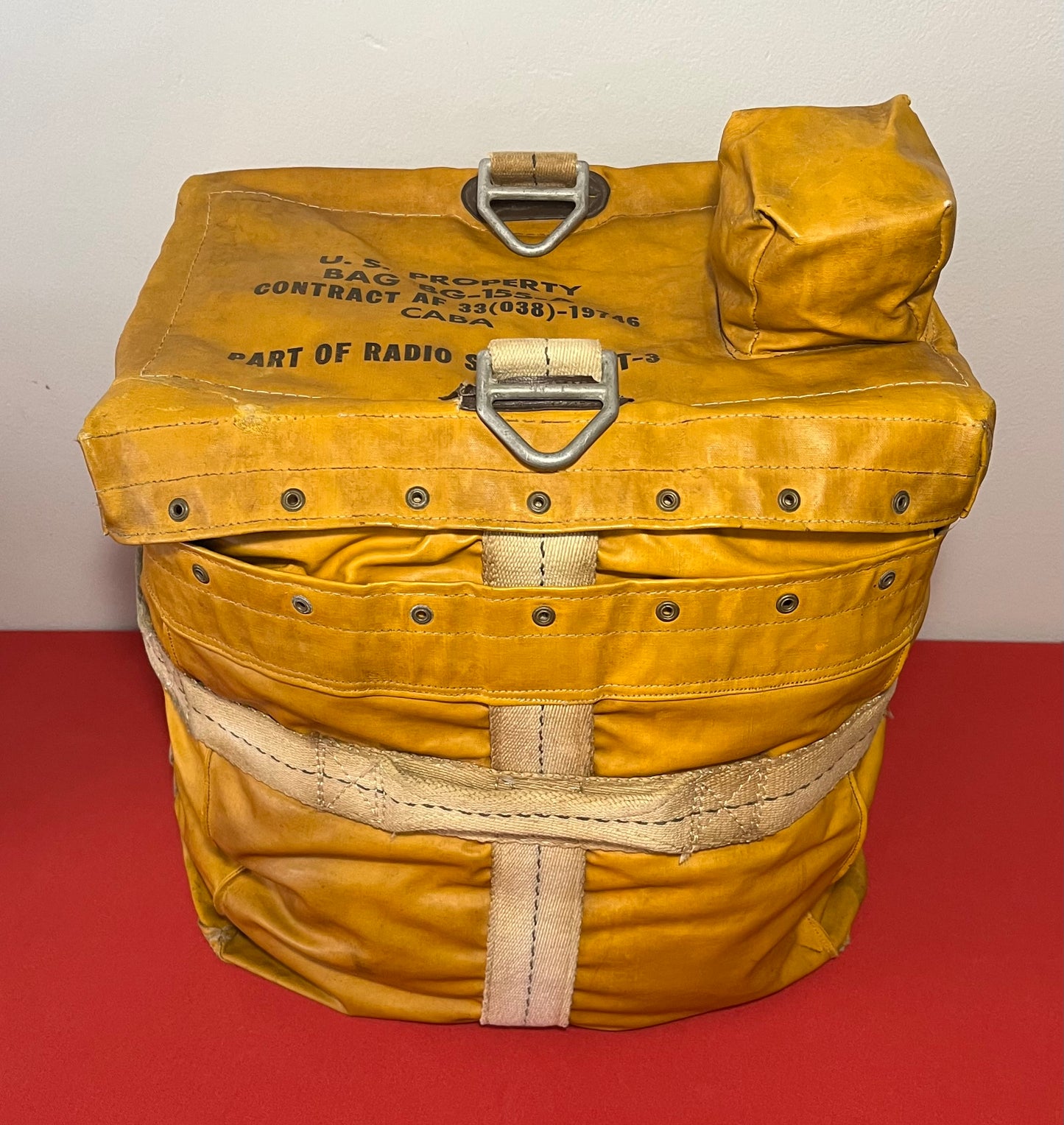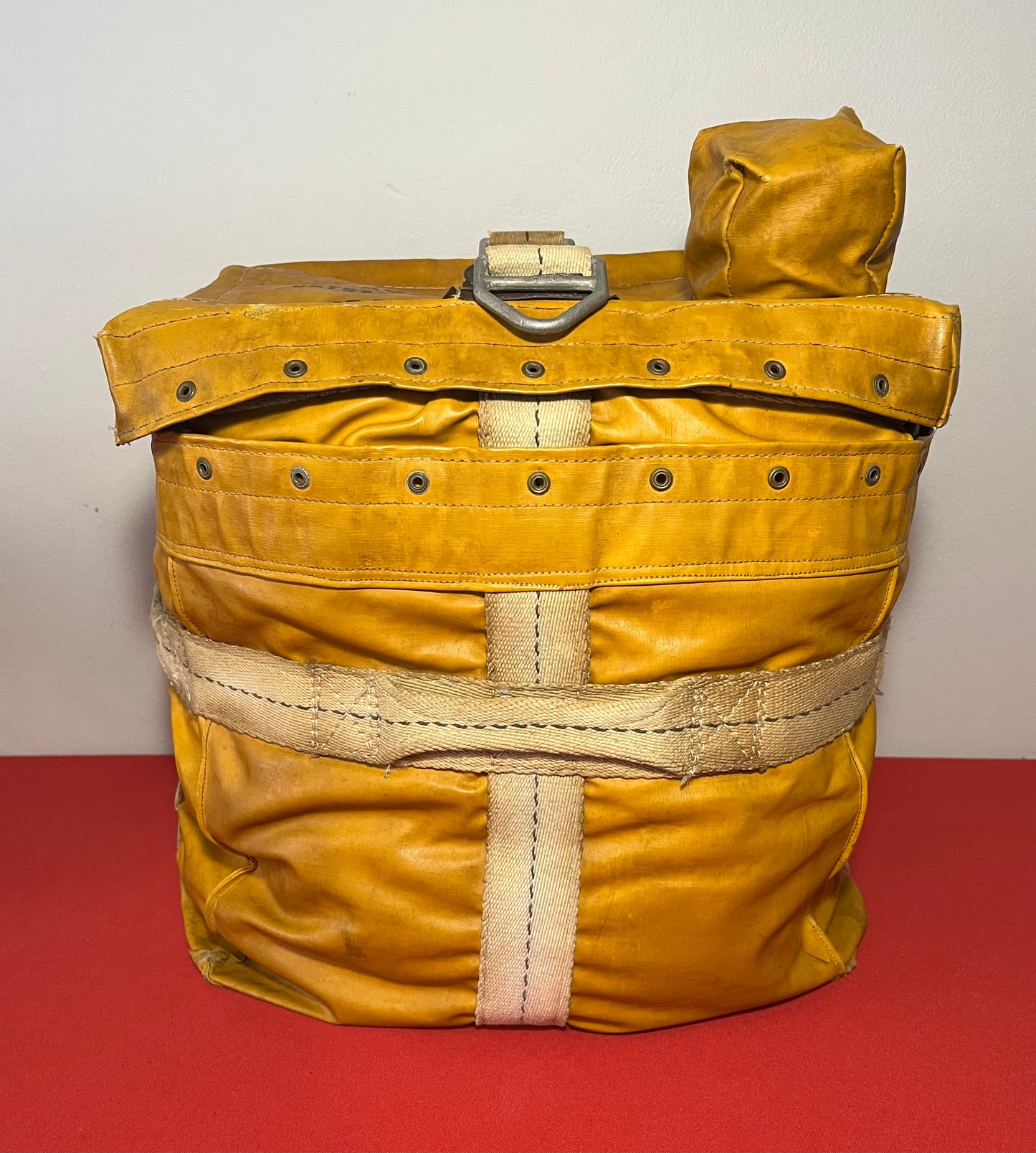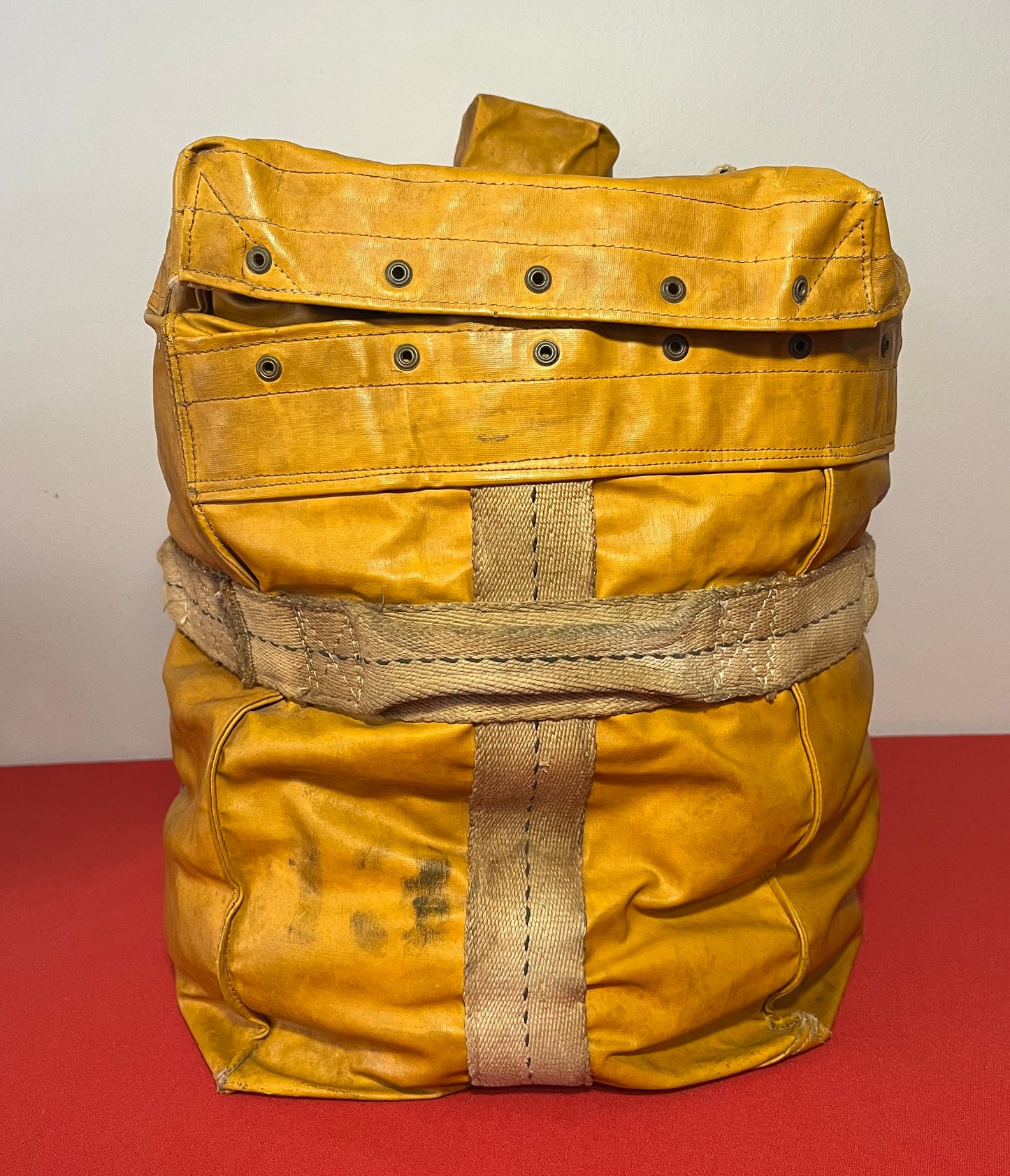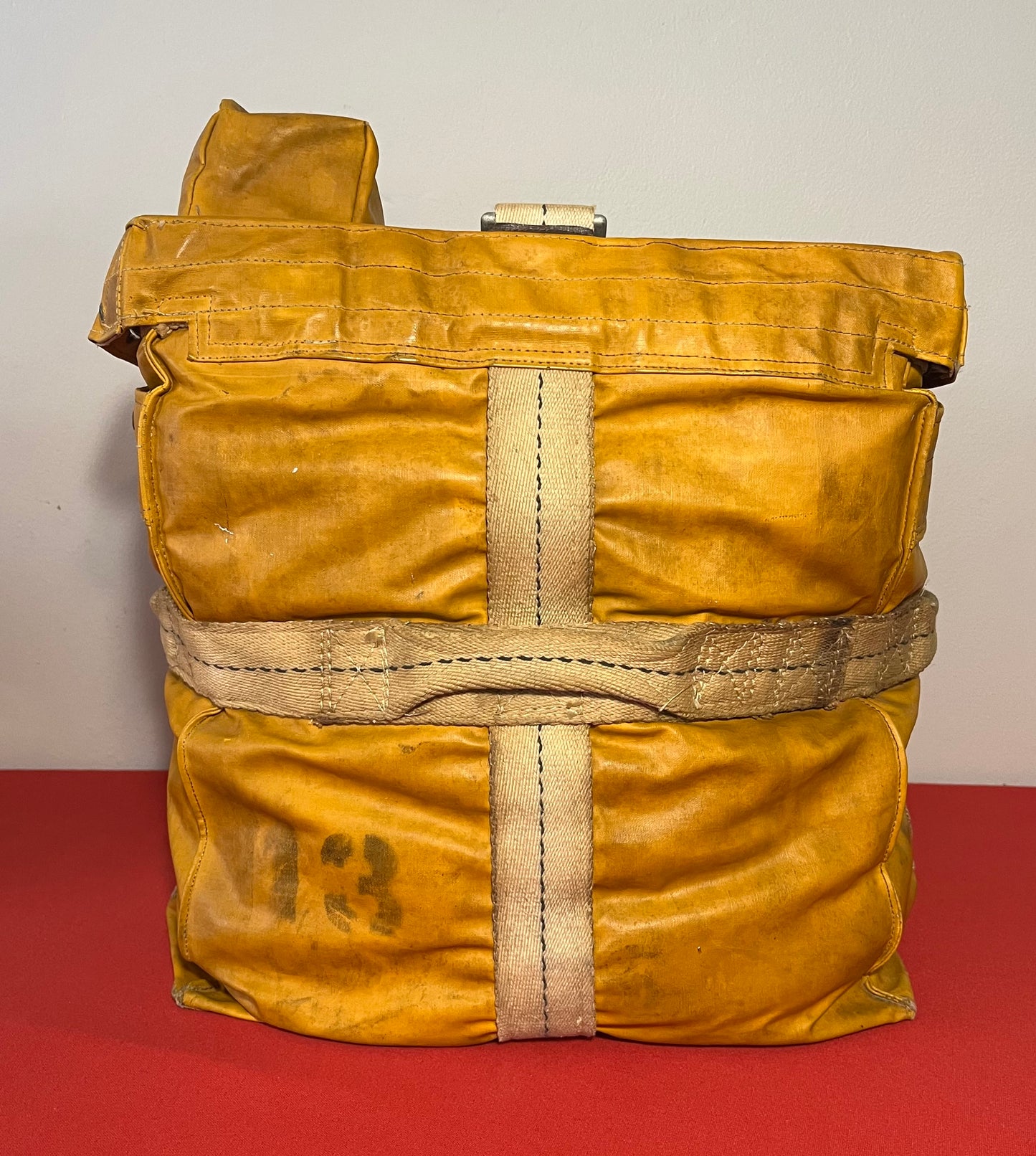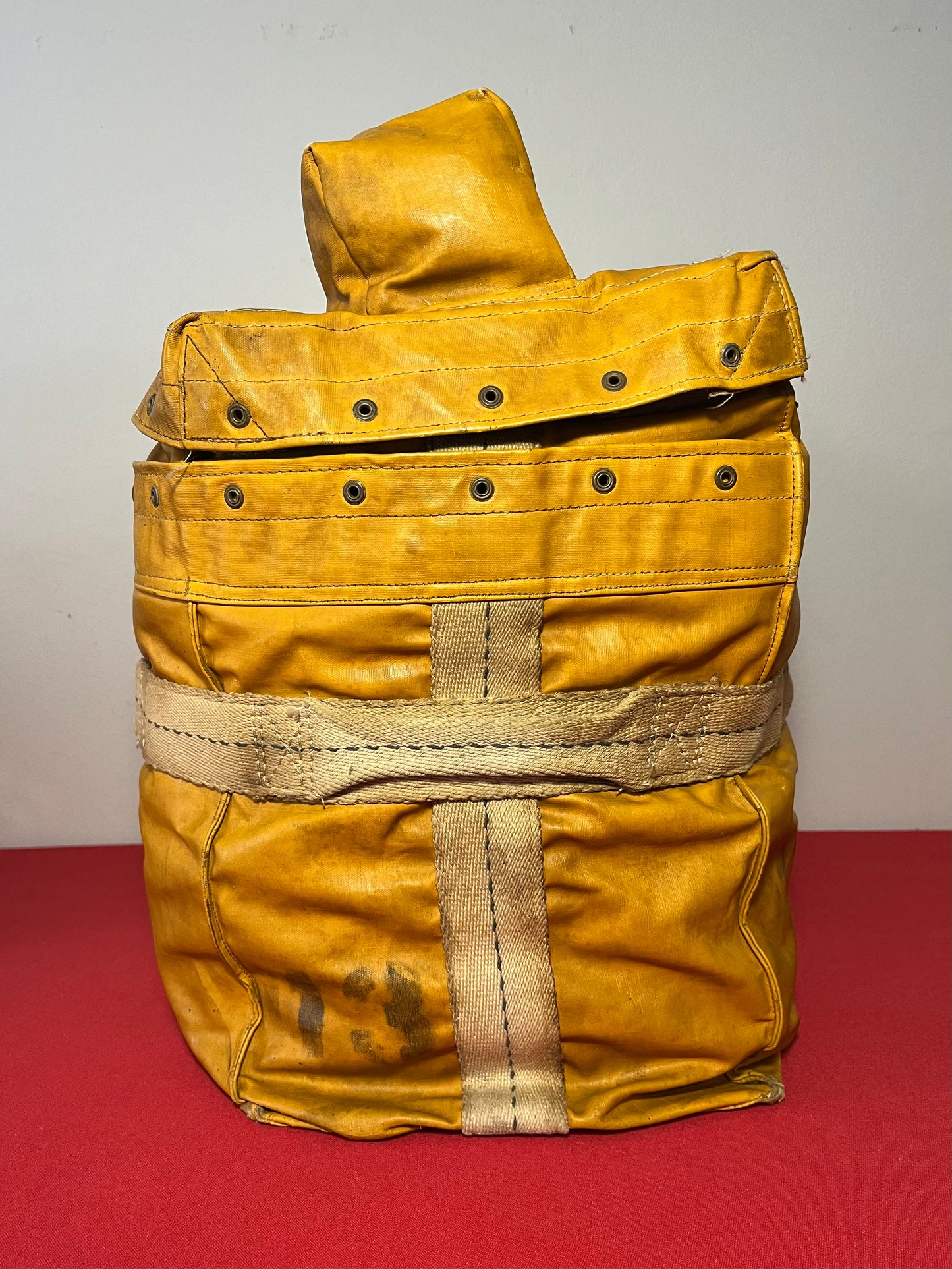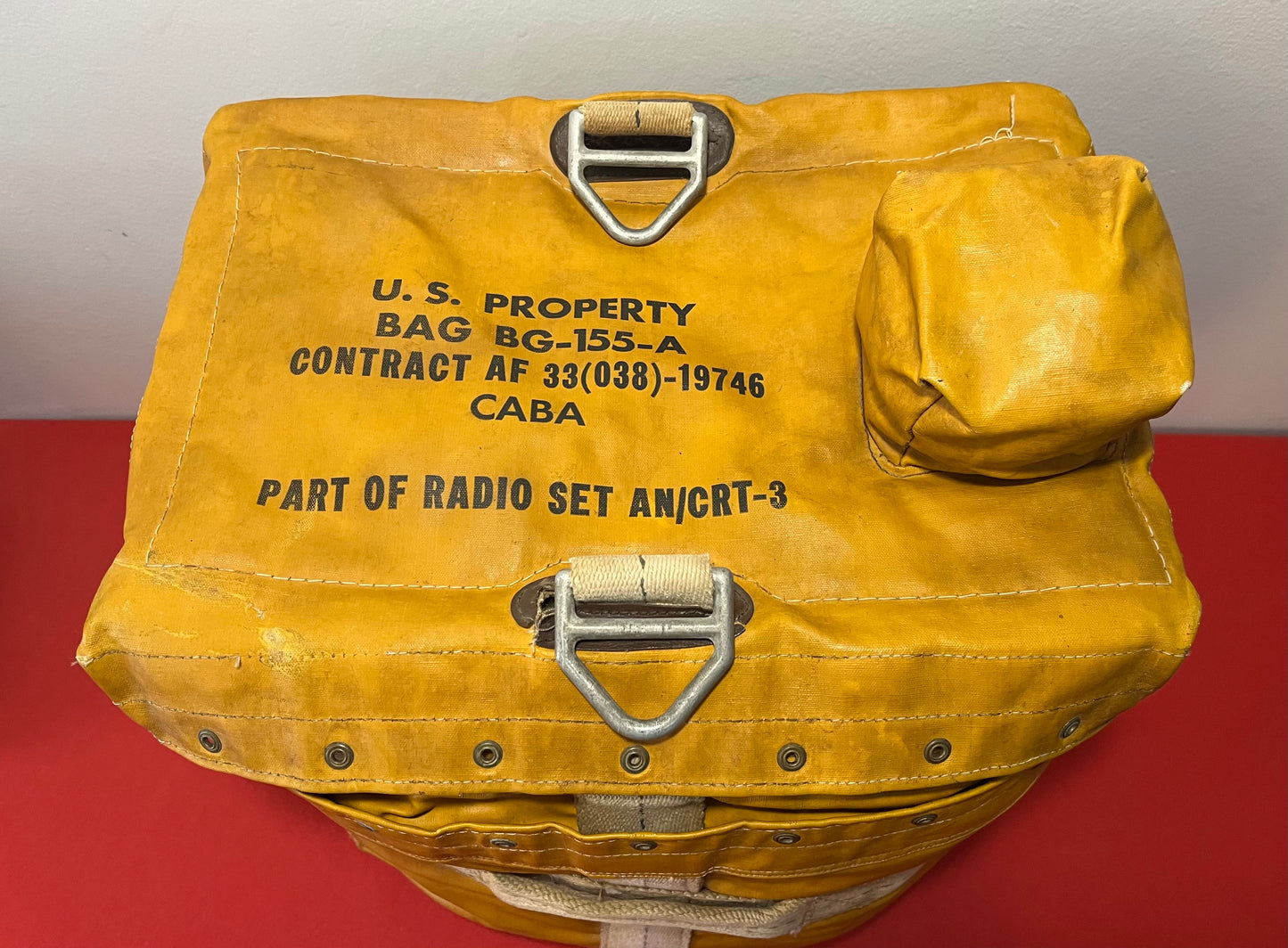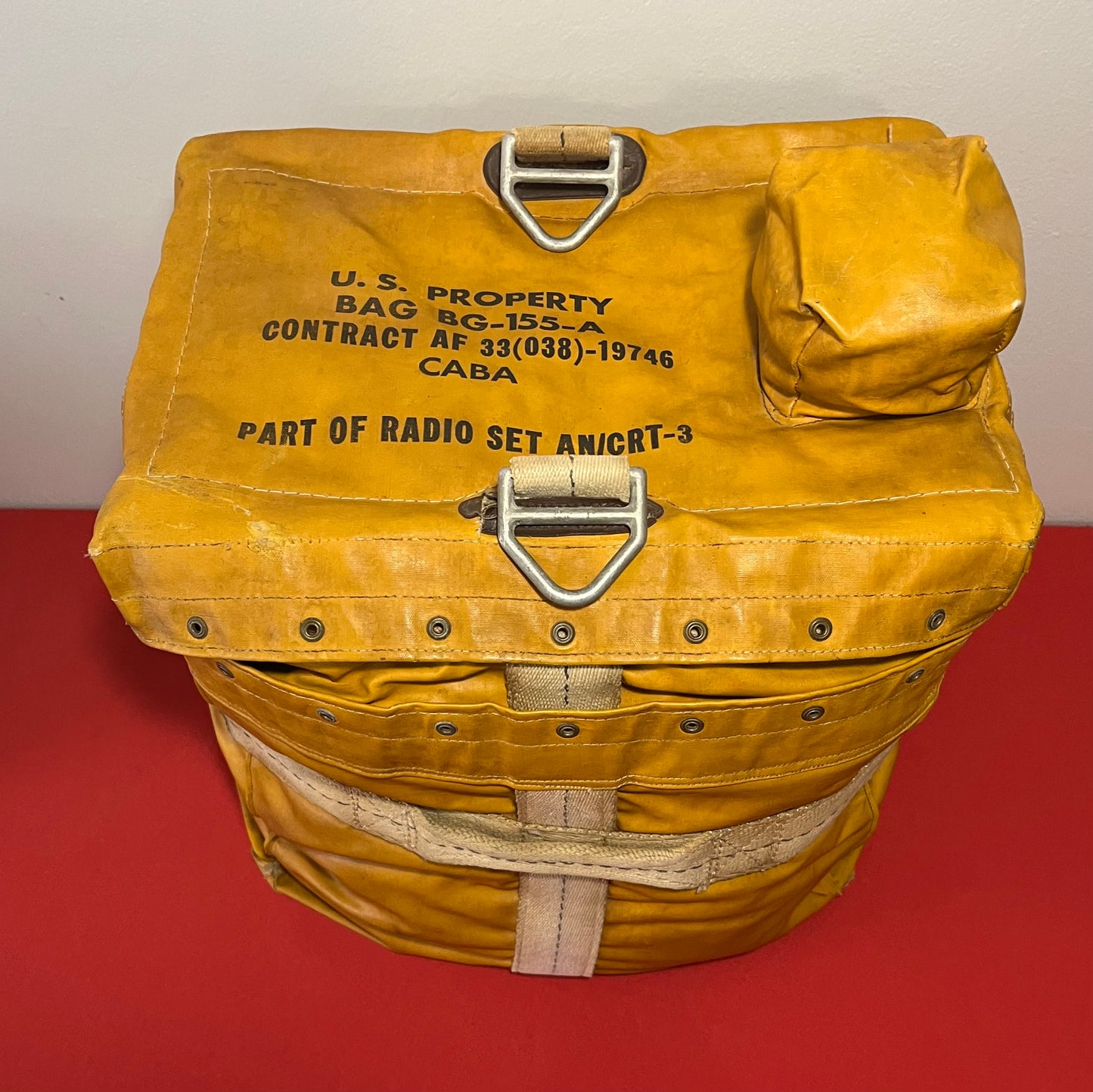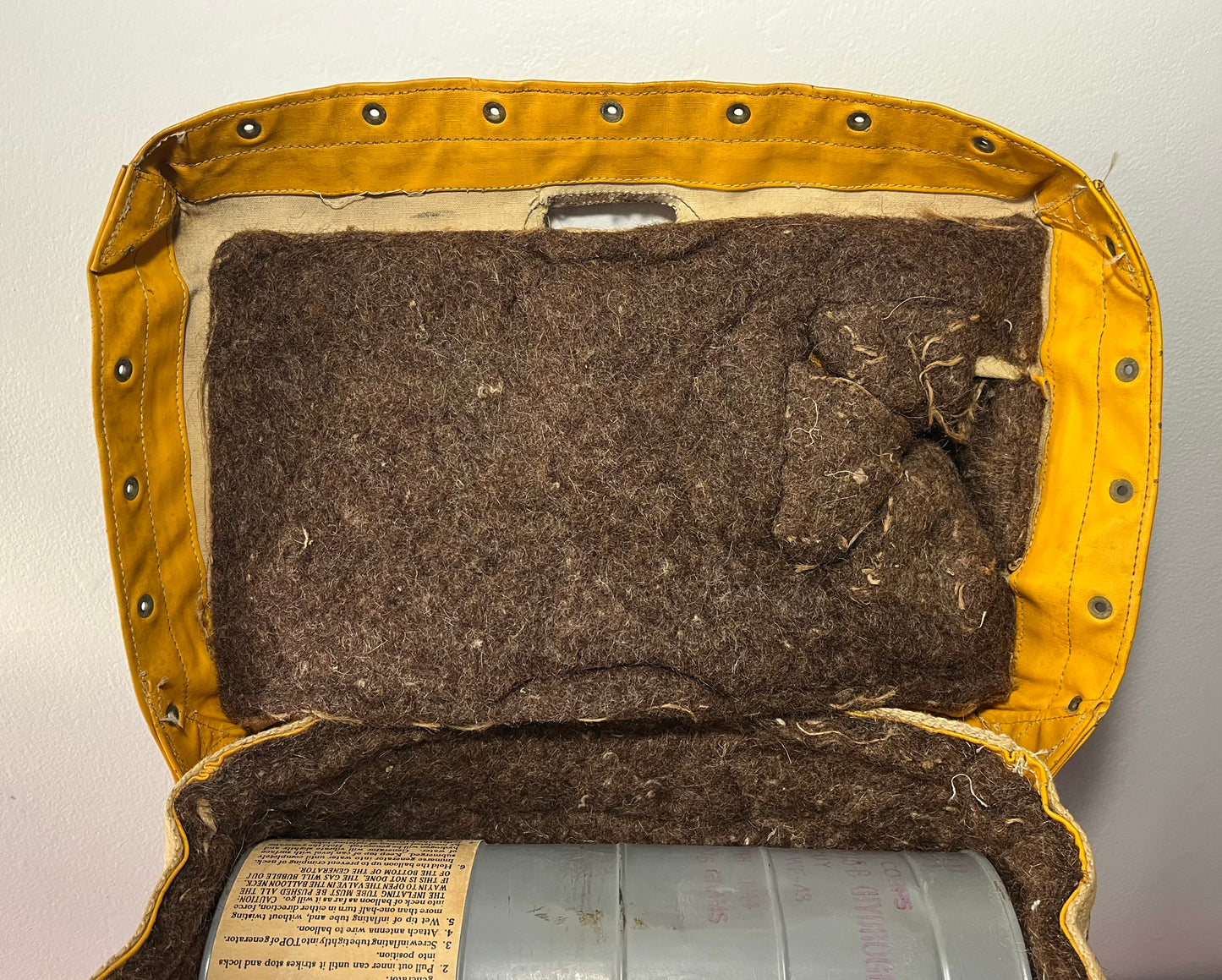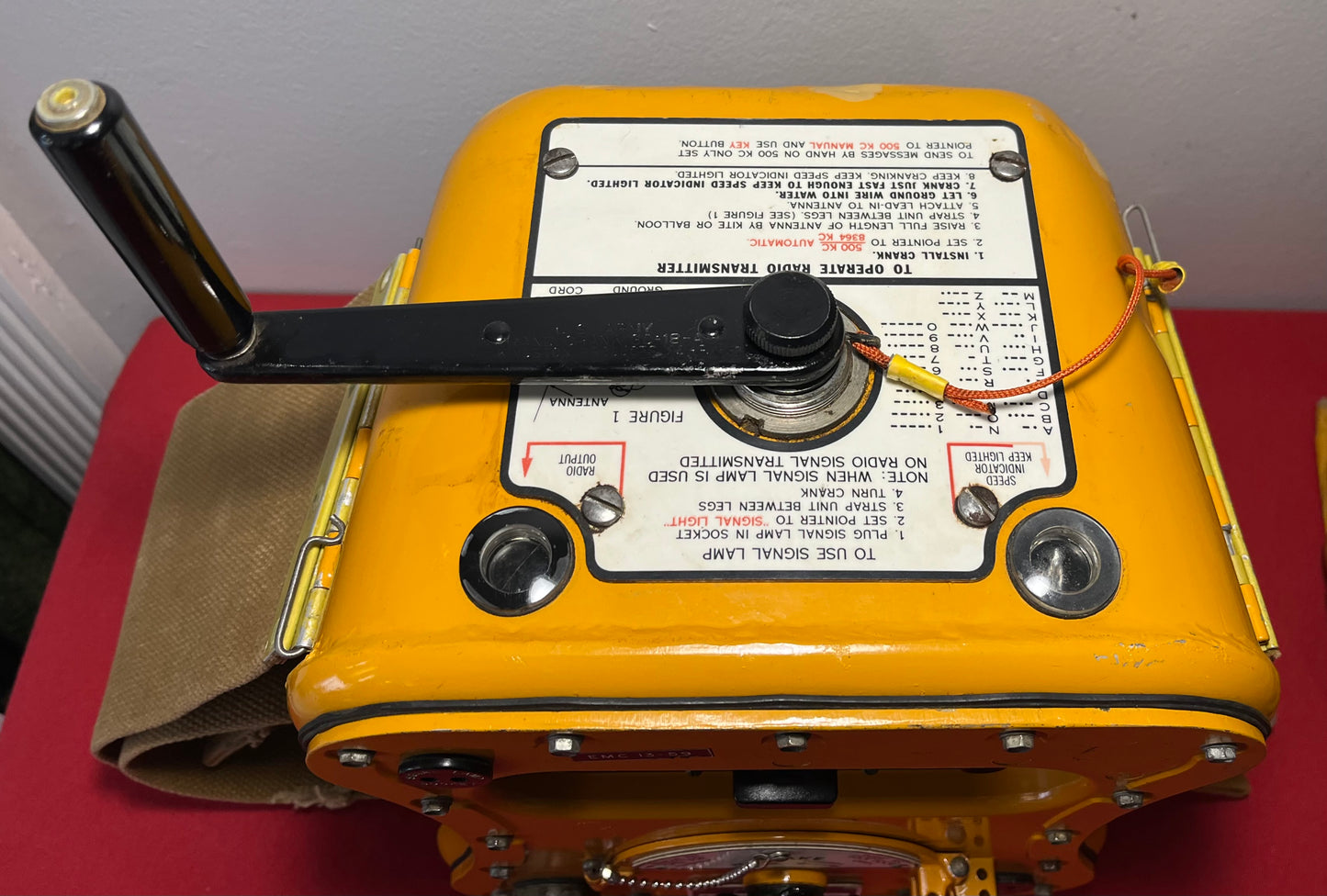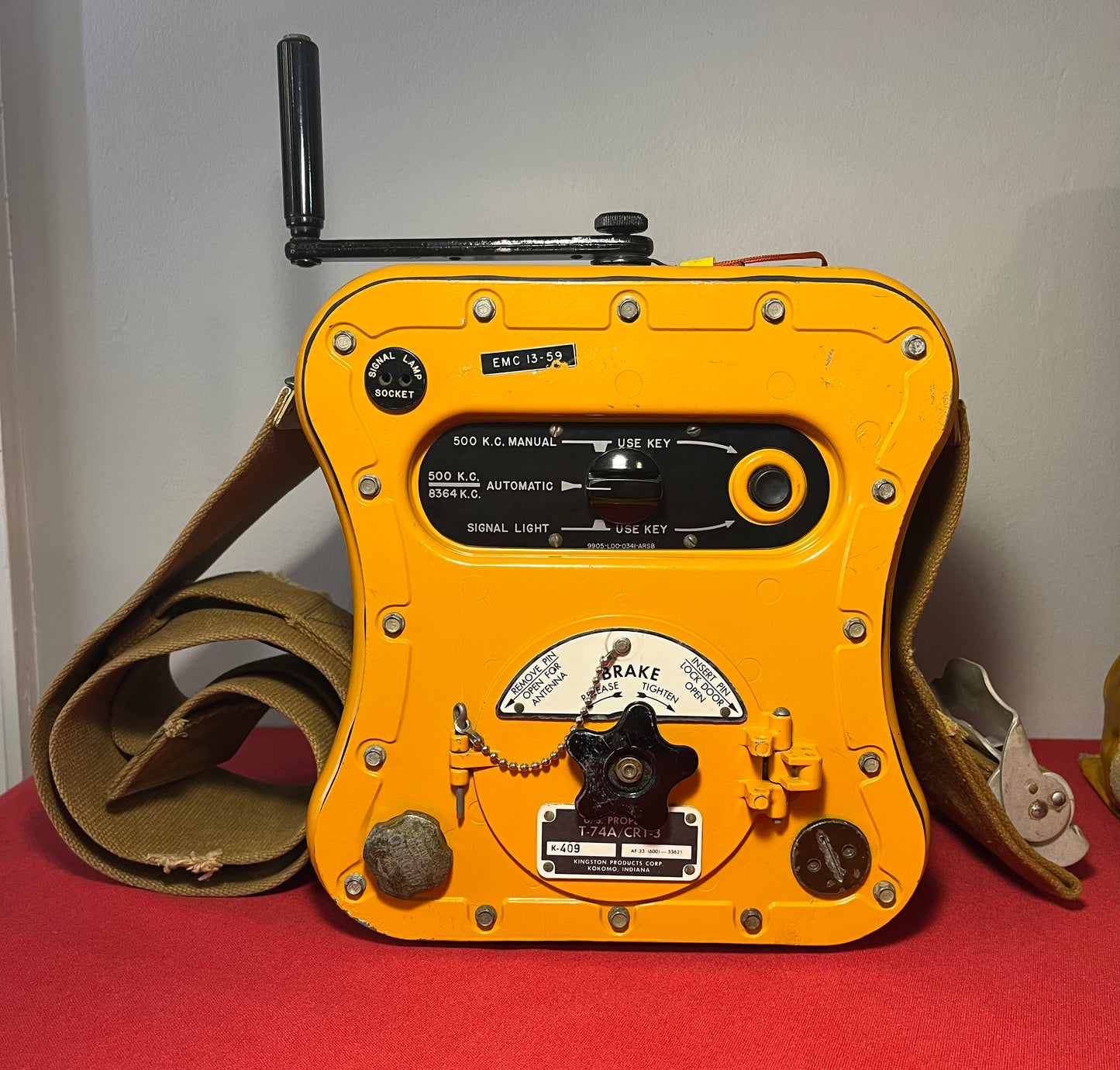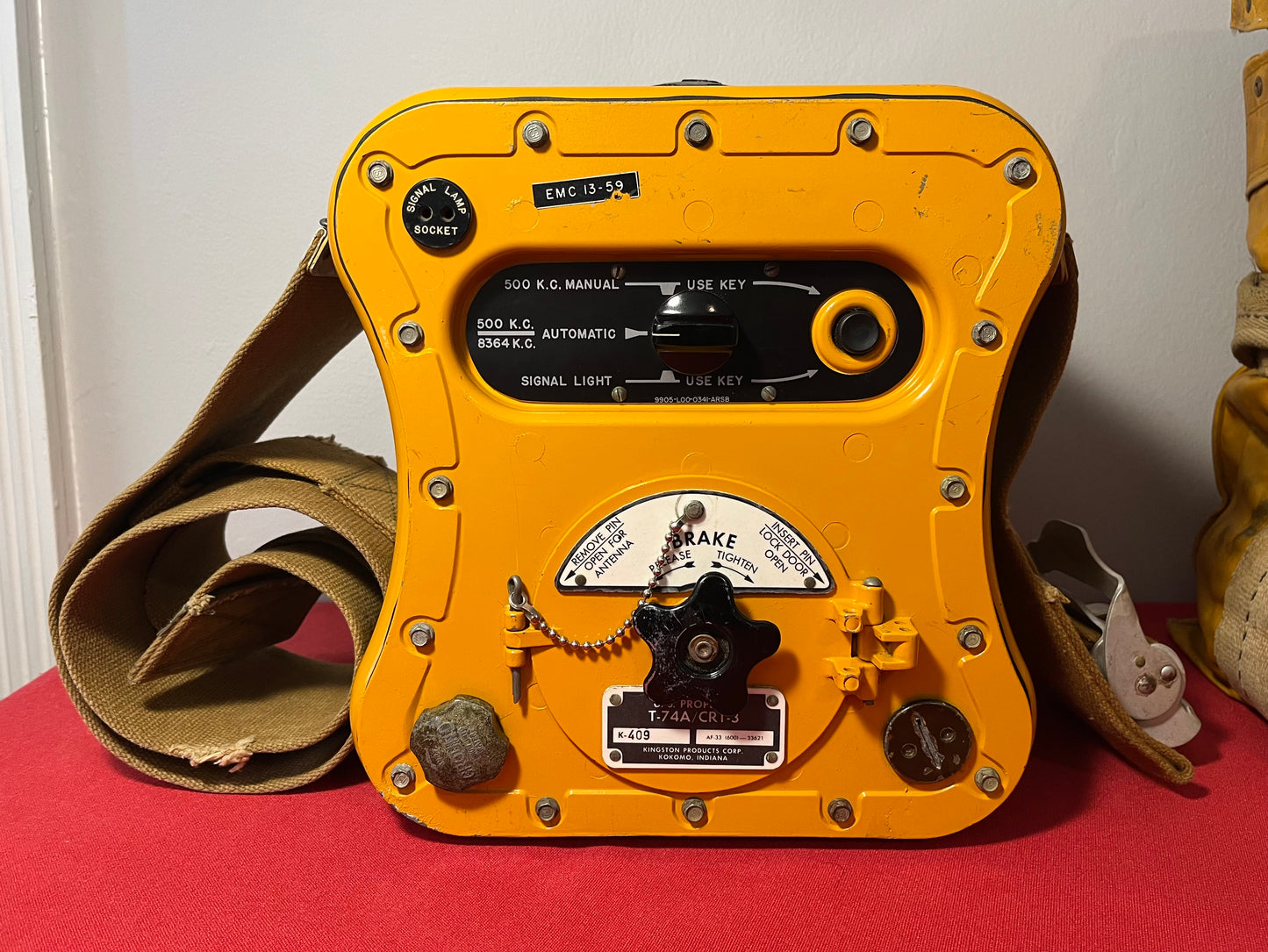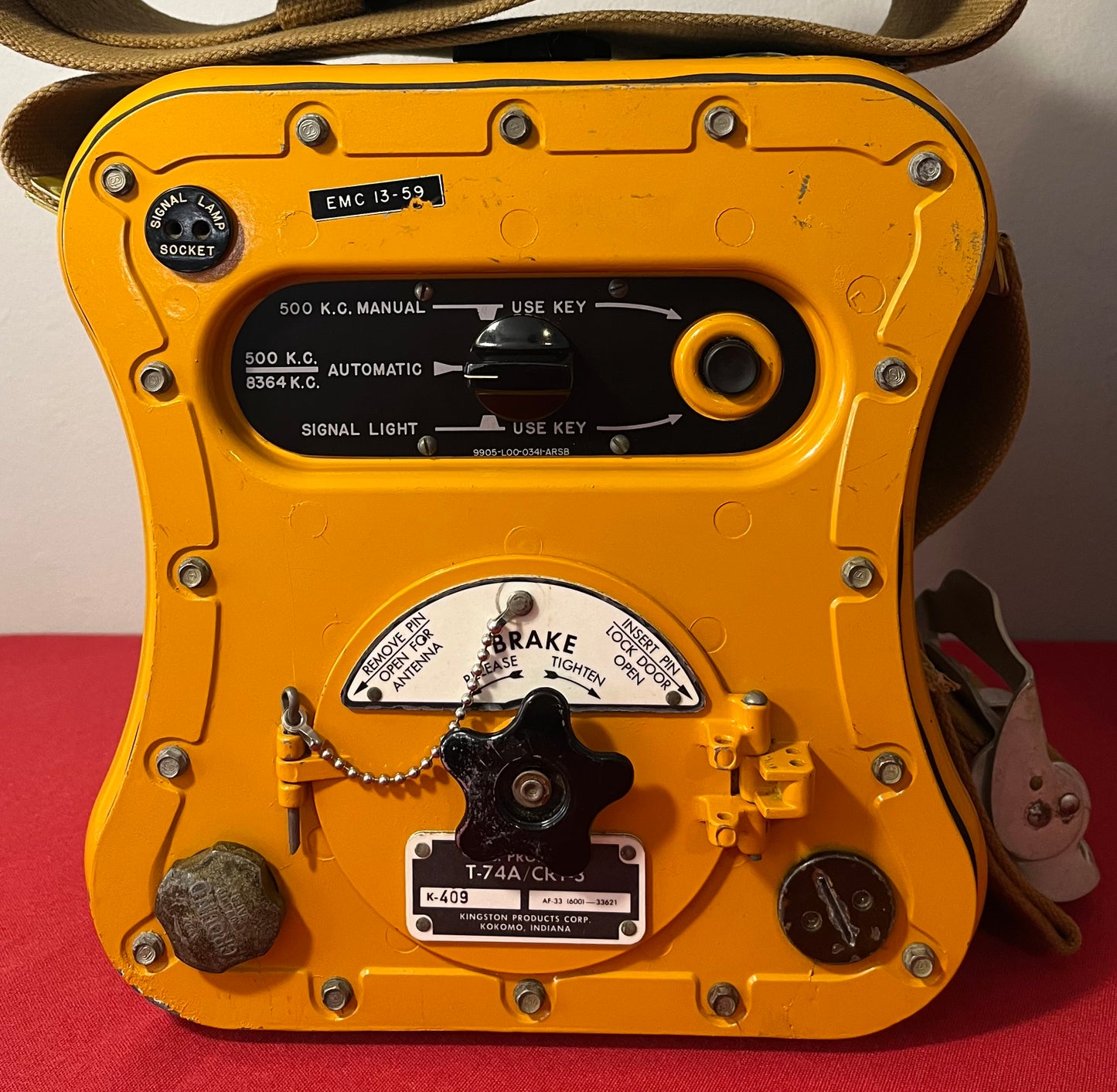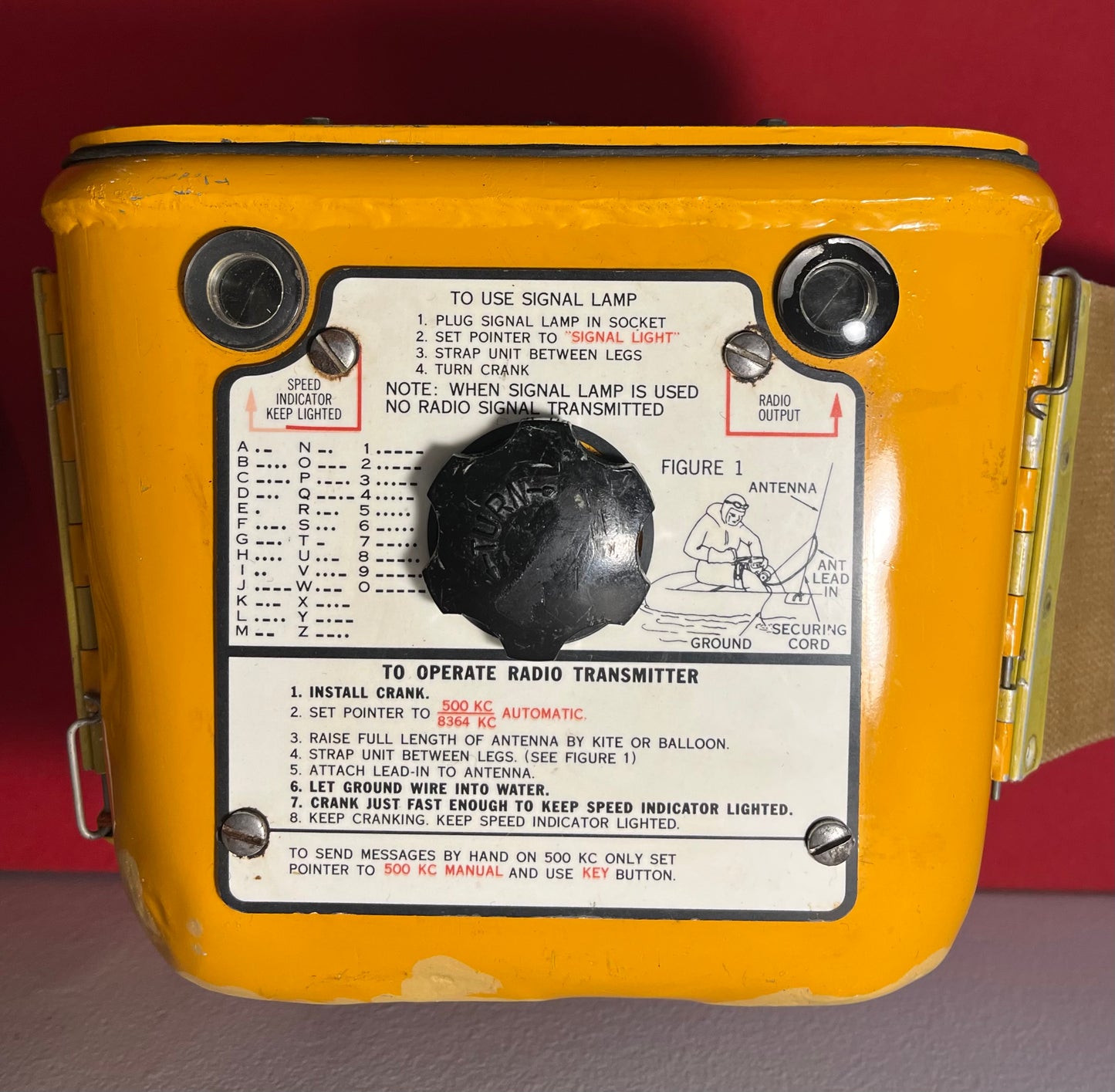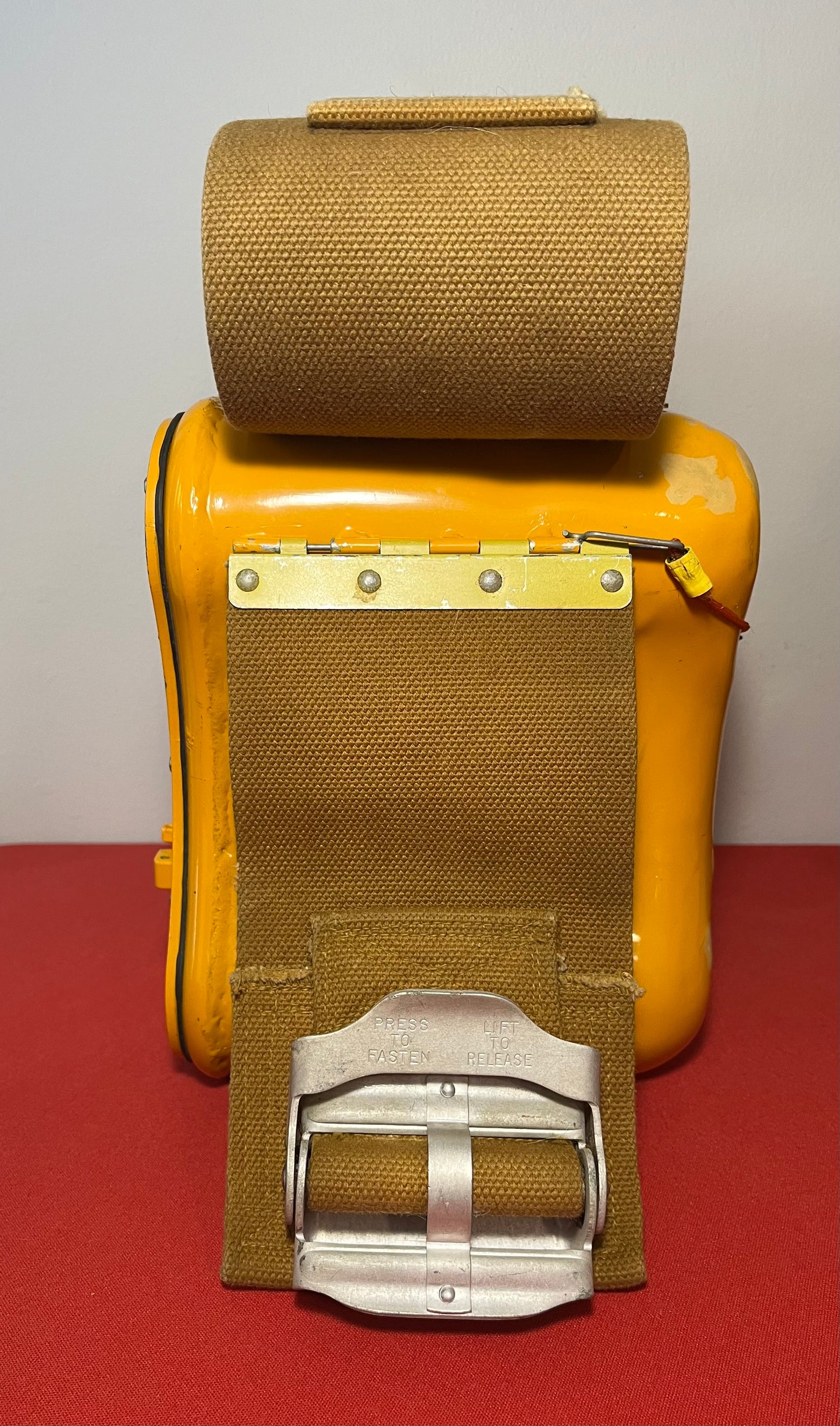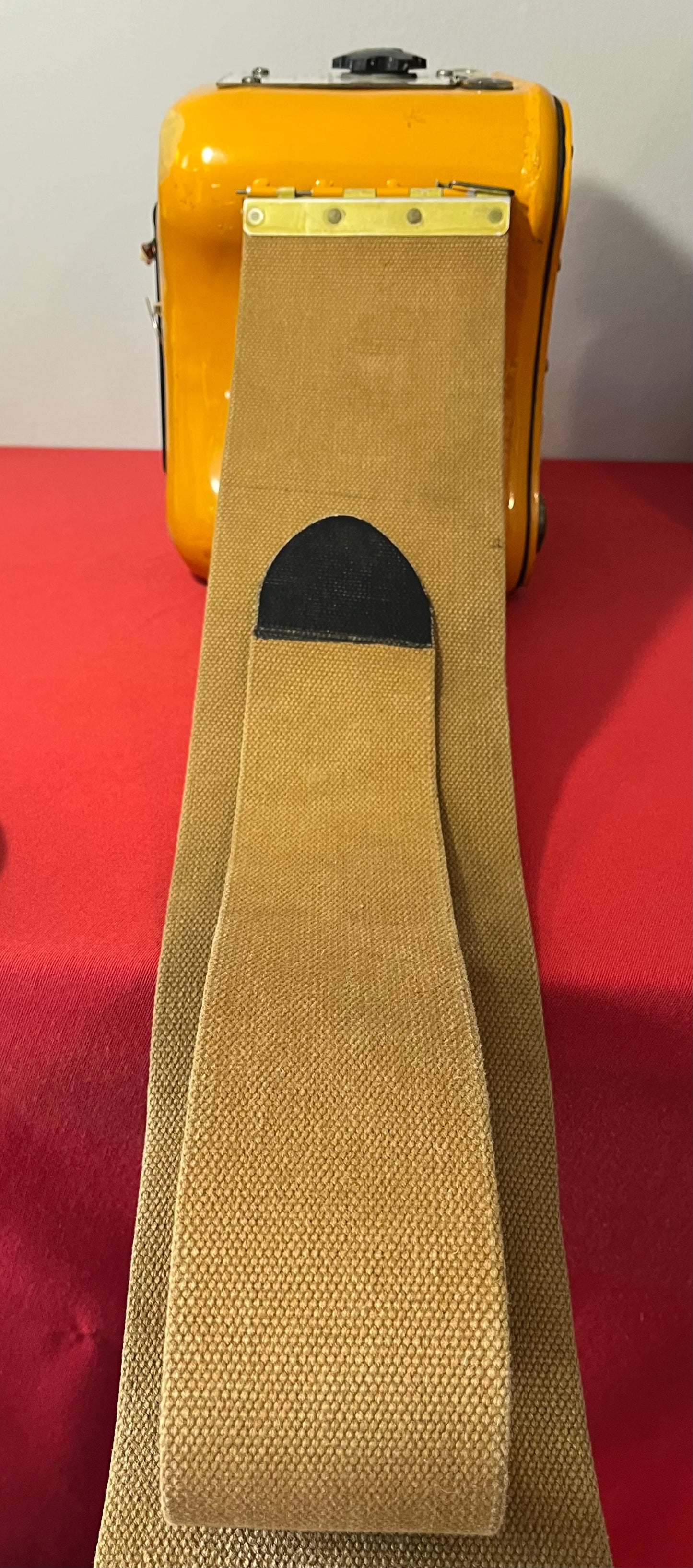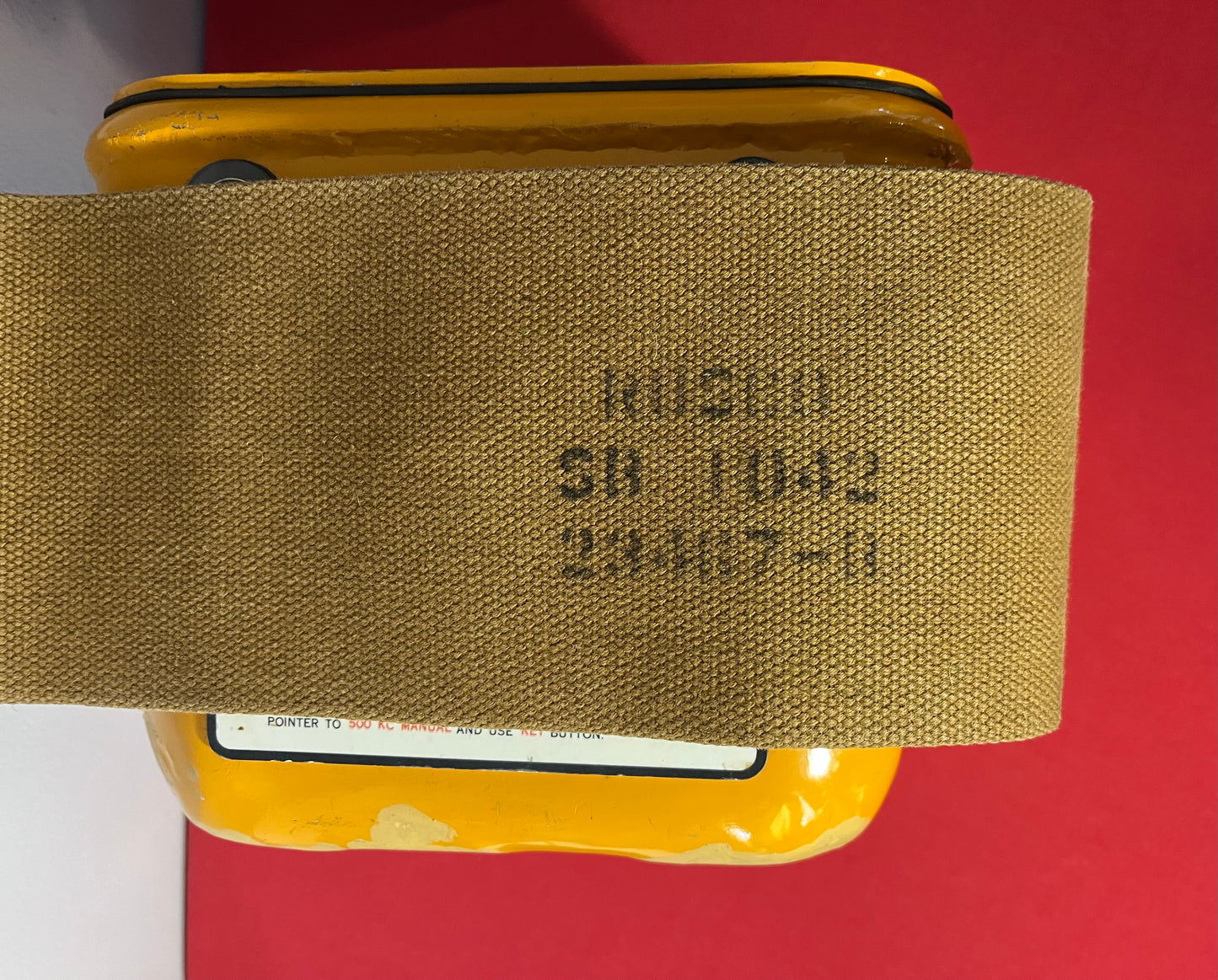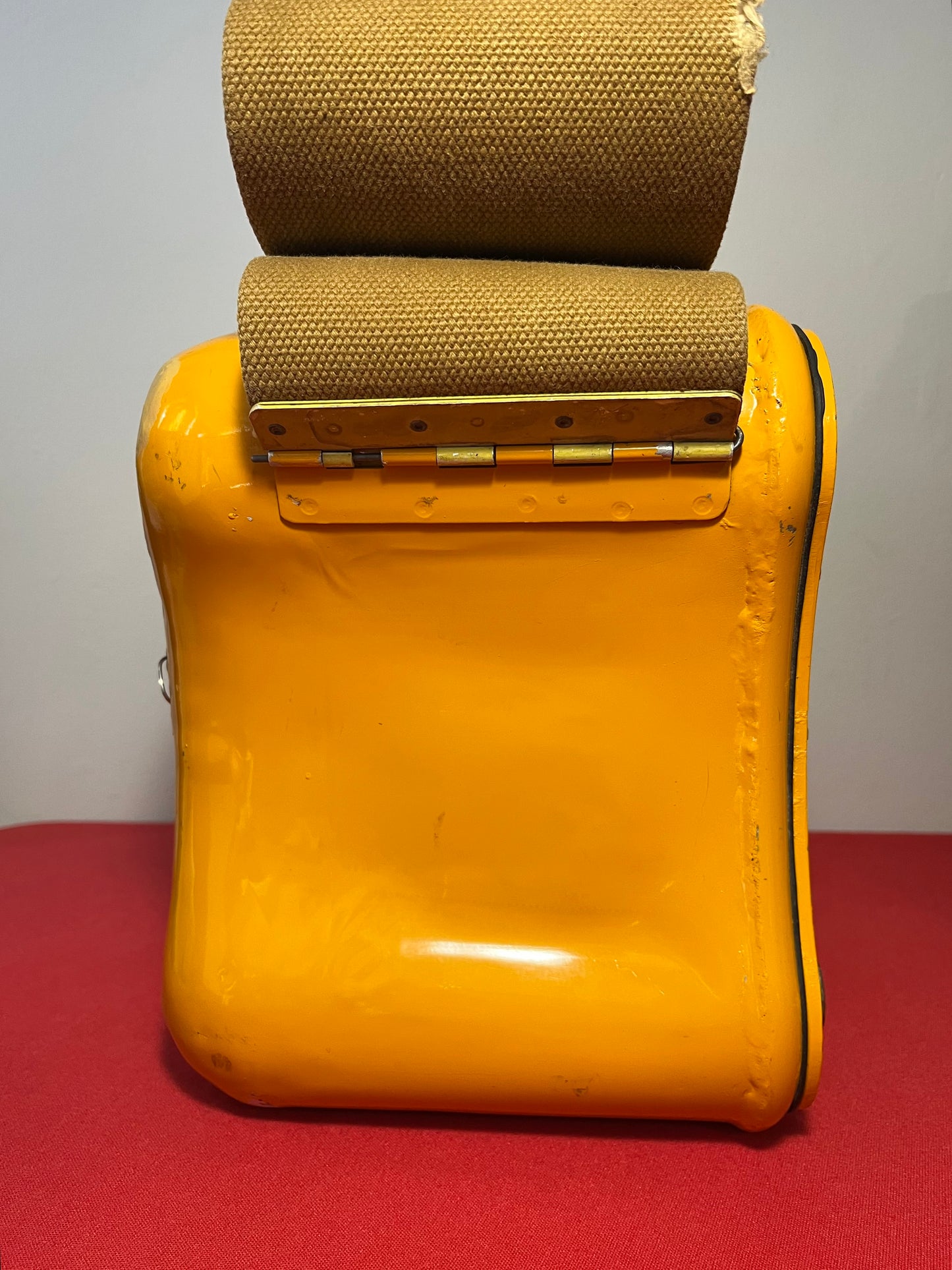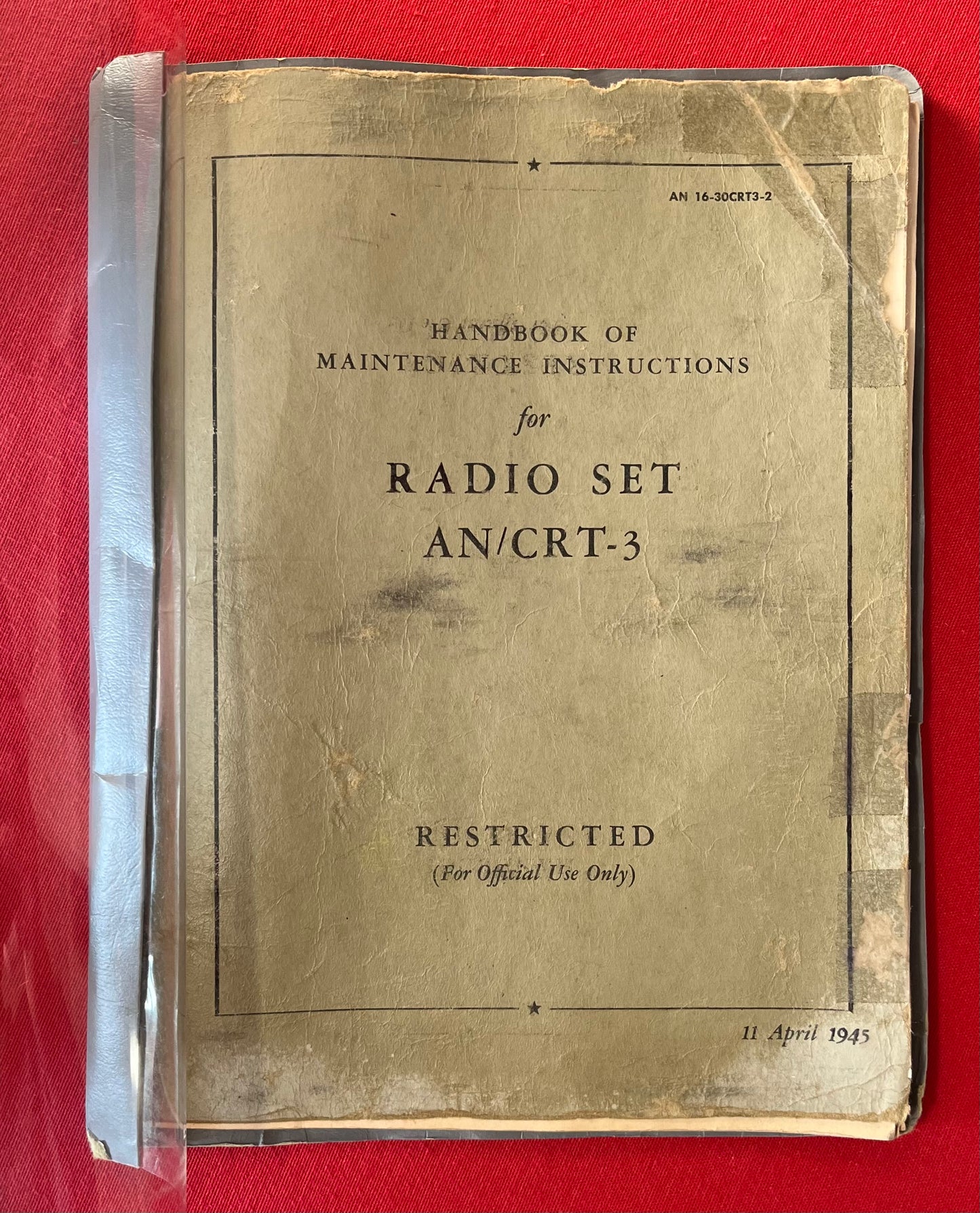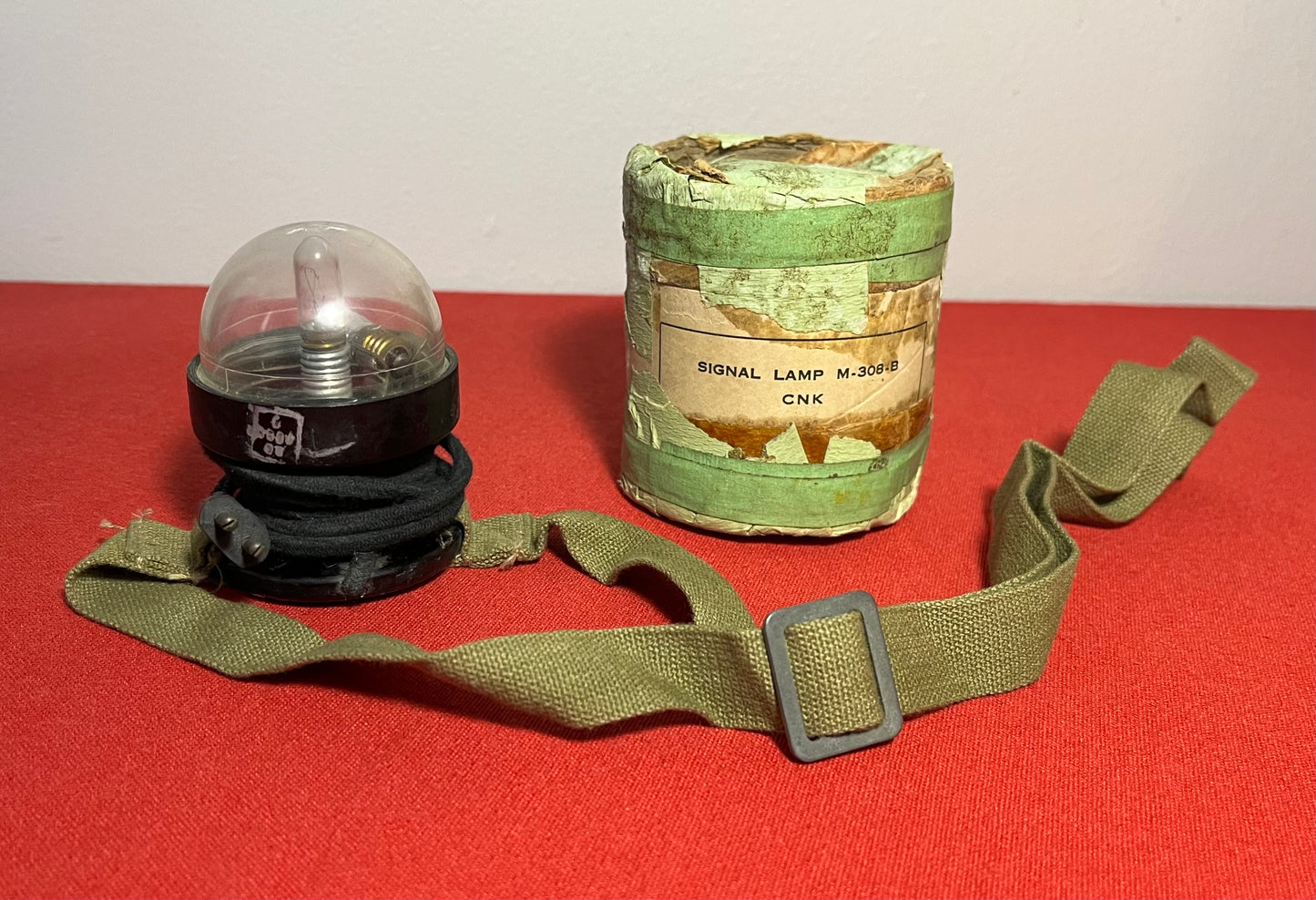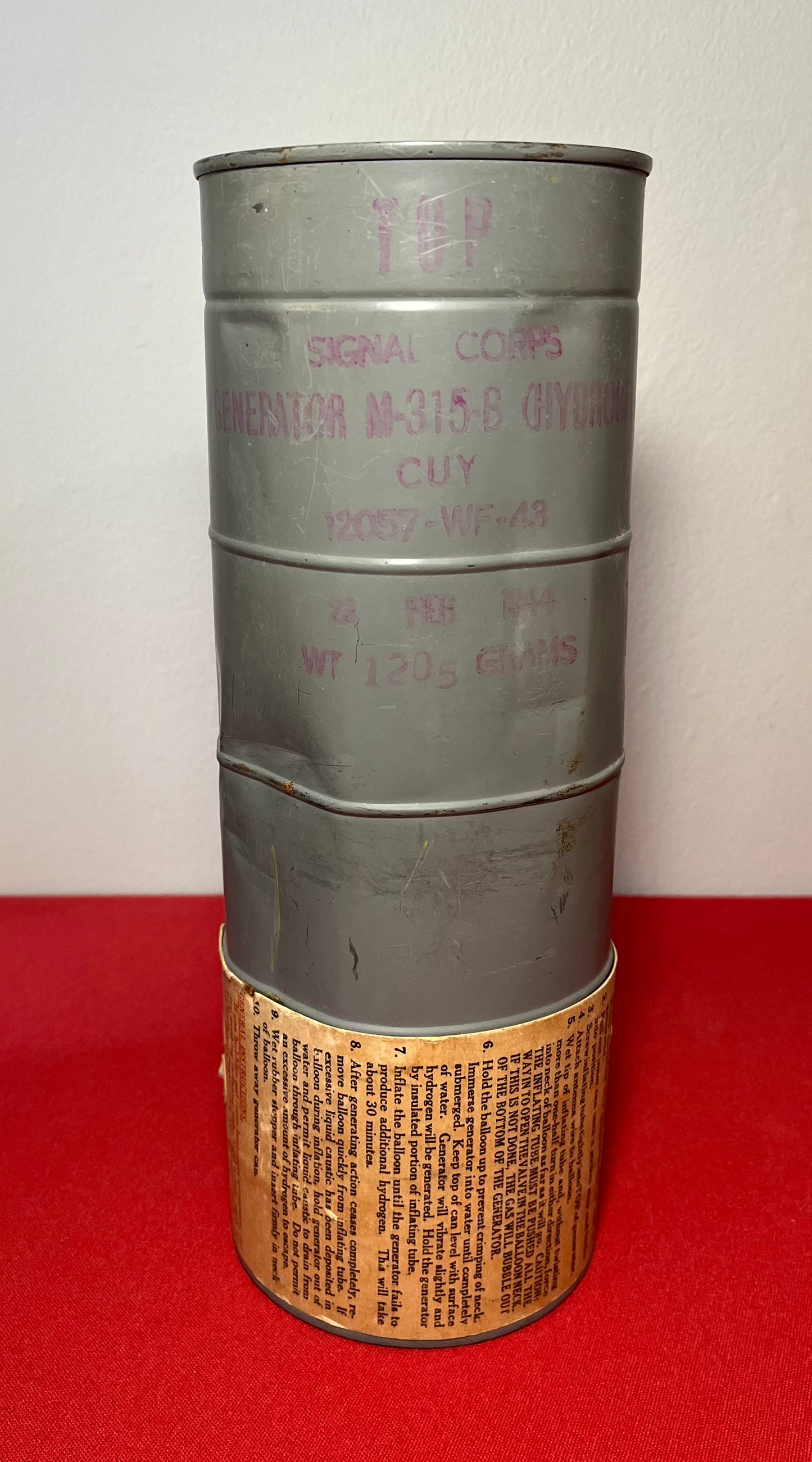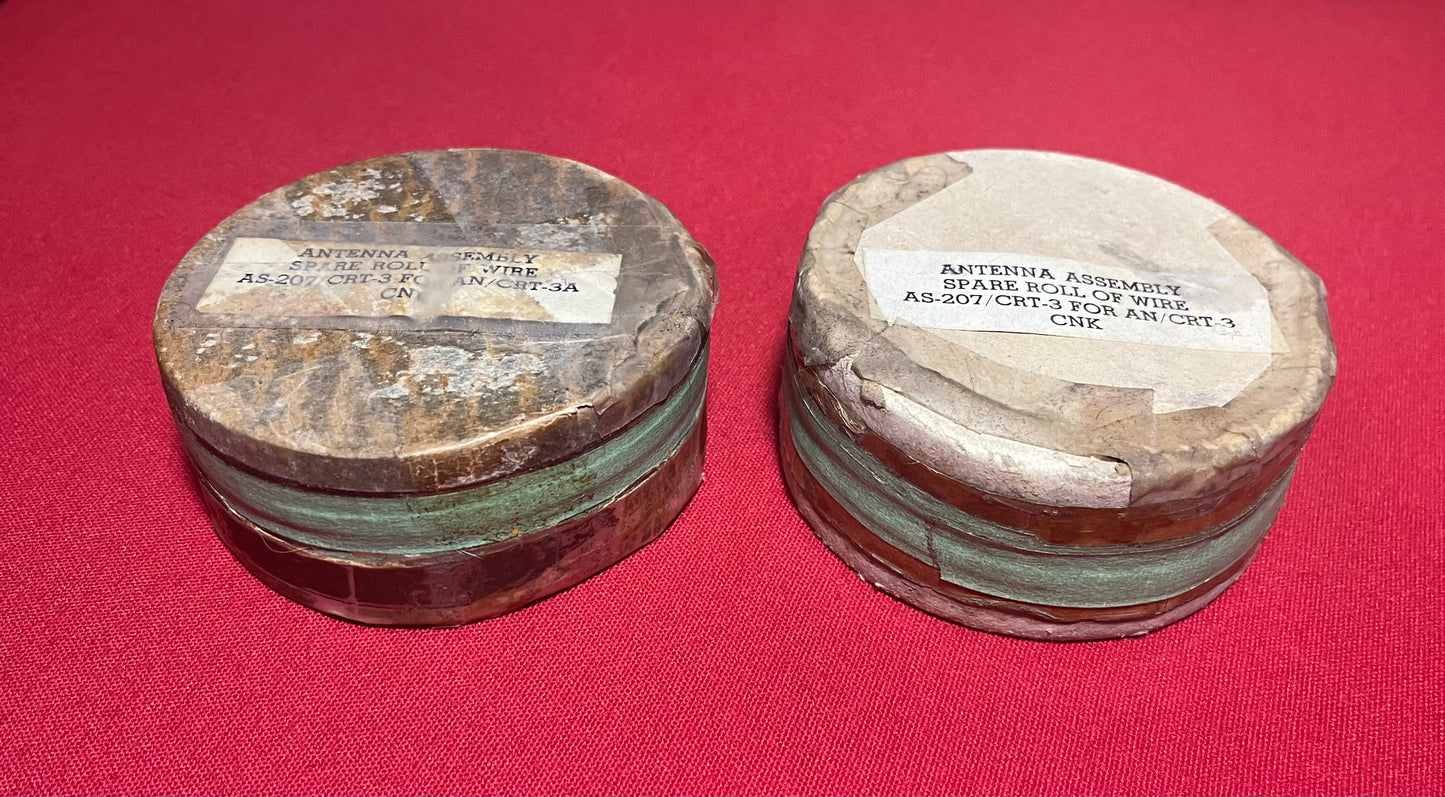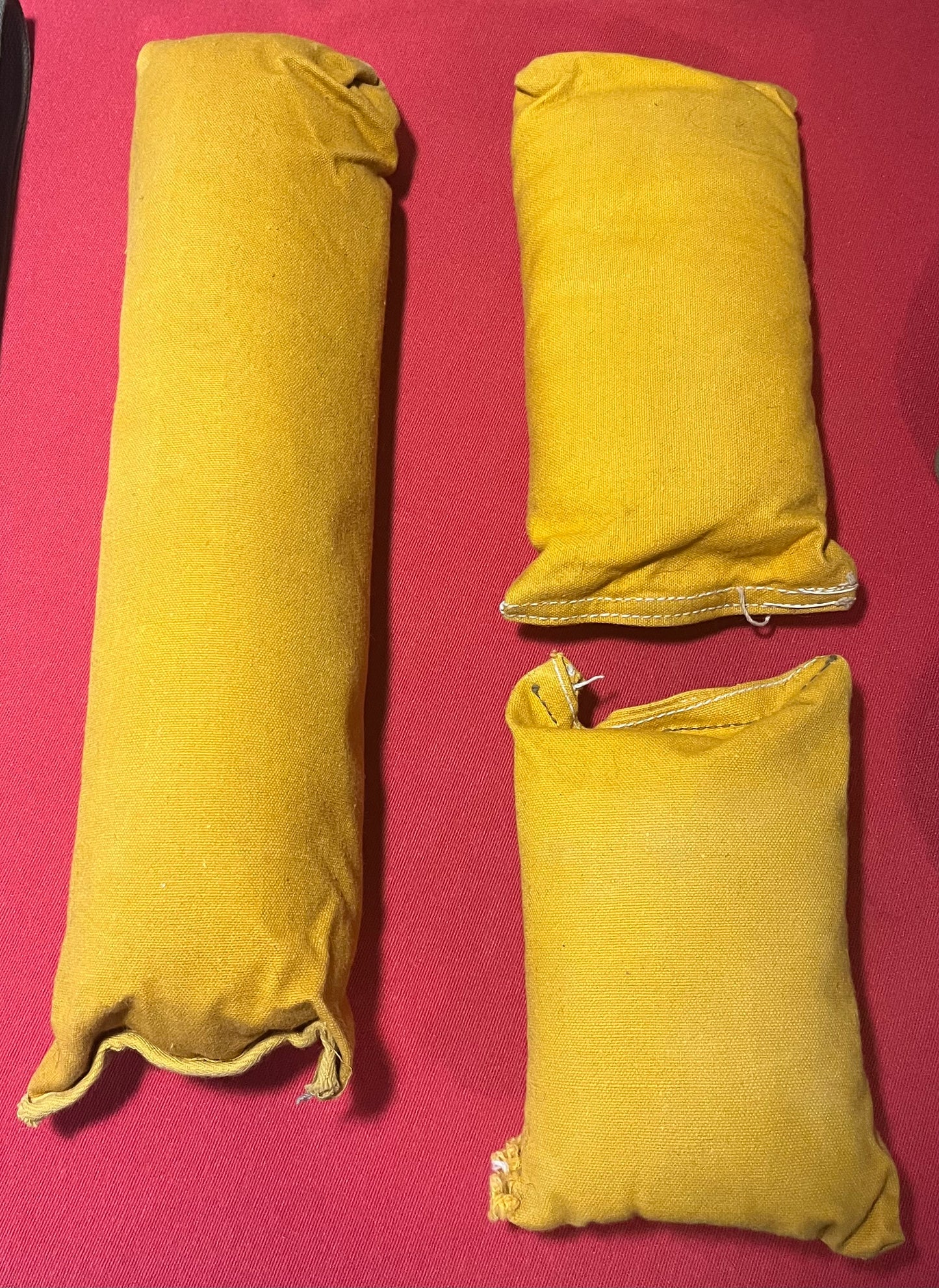WW2 U.S Army Air Force USAAF “Gibson Girl” SCR-578 Survival Radio Transmitter Set
WW2 U.S Army Air Force USAAF “Gibson Girl” SCR-578 Survival Radio Transmitter Set
Couldn't load pickup availability
WW2 U.S Army Air Force (SCR-578) Type T-74A / CRT-3 “Gibson Girl” Radio Transmitter Set & Contents.
SCR-578 was used on B-17 and B-24 bombers. In case of emergency the unit could be parachuted down for use in a “dinghy” lifeboat. The radio transmitter got its name because of the narrow waist of the set reminded people of the young ladies drawn by illustrator Charles Dana Gibson “an artist of the era”.
The Gibson Girl radio set is a hand powered emergency transmitter ruggedly designed for use in a life raft. Use of the Gibson Girl enabled rescue crews to locate survivors of the aircraft using the SOS signal it transmitted. The SCR-578 and its accessories are bright yellow-orange in color and can float when landing in water. The Gibson Girl is operated by holding it between the knees while cranking the internal generator by hand. It can be set to automatically transmit an SOS signal, or manual keying can be used to send a message.
The Gibson Girl design was based on a captured German emergency transmitter called the Notsender NS2, easily recognizable with the same hourglass shape. The British designed an improved version but lacked the manufacturing capacity. A contract was let to Bendix Aviation for an American version, the Radio Set SCR-578-A. Bendix began deliveries in May 1942. The updated AN/CRT-3 became available in 1945. The Gibson Girl transmitters were used by military and civilian aircraft and ships into the 1960s.
-The Gibson Girl Emergency Transmitter was produced in two main versions:
-Radio Set SCR-578 broadcast on a single frequency of 500 kc, for reaching locally operating ships and aircraft. There were two versions, SCR-578-A and SCR-578-B.
-Radio Set AN/CRT-3 broadcast on 500 kc or 8280 kc frequencies. The 8280 kc signal reached base stations at longer range. Visually identical to SCR-578.
-Some models of the AN/CRT-3 operated at 8364 kc instead of 8280 kc. All Gibson Girl frequencies are internationally reserved for distress signals.
Gibson Girl Emergency Transmitter Accessories
The Gibson Girl transmitter can be operated by untrained personnel, following instructions printed on the radio's case. To facilitate operations under all conditions, the full kit of Gibson Girl radio equipment includes:
- Radio Transmitter BC-778-A (SCR-578) or T-74A/CRT-3 (for AN/CRT-3)
- Hand Crank GC-18-A to operate the internal generator
- Reel RL-48 inside a front-panel door holds 800 ft. of antenna wire W-148
- Kite M-277-A, folding metal frame box kite to raise the antenna in wind
- Balloon M-278-A, for use when wind is insufficient for the kite
- Generator M-315-A produces hydrogen to inflate the balloon to 4 ft in diameter
- Signal Lamp M-308-A, to communicate locally with rescue crews
- Parachute M-390-A
- Bag BG-109-A (Cylinder bag containing Kite assembly, 2 balloons, 2 hydrogen generators, signal lamp, wire)
- Bag BG-110-A (Cube shape bag containing Gibson Girl radio and crank with parachute in pouch on top)
(Not all these accessories are included with this set please look at photos to see what is included)
-NOTE- The extremely hard to find Manual AN / CRT-3 and a "Post war" Carry Strap is INCLUDED EXTRA
This bag has insolation made of hair and pieces can flake off.
The total weight of the radio and all accessories is 33 pounds. The suffix letters changed as manufacturing developed improvements. For example, the M-390-A parachute (untreated rayon) was superseded by the M-390-B (tropicalized nylon). Other changes included packing all components into a single cube shaped bag BG-155-A for the AN/CRT-3 model.
The balloon was inflated by connecting the hydrogen generator inflating tube to the balloon, then immersing the hydrogen generator in water. The chemical reaction that produced hydrogen also produced a lot of heat, so caution was required.
Pictures of set provided / Please inquire with any questions as all sales are final (due to the items weight and many individual contents in the shipping process)
Share
